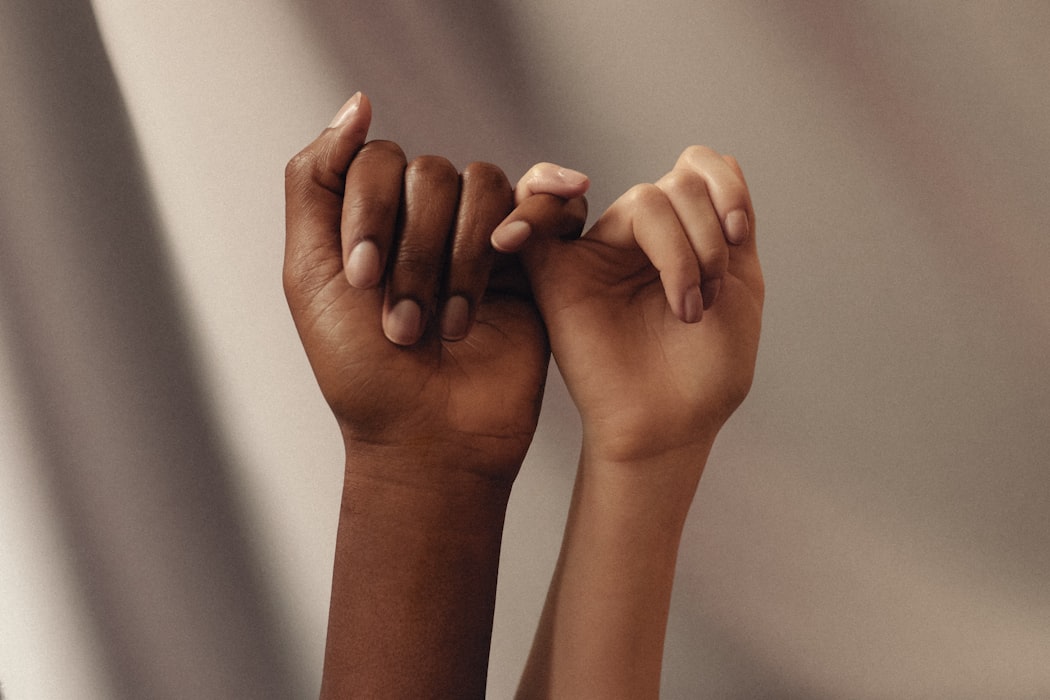
Open Relationships 101: How To, Dos and Don’ts and What to Expect
Unconventional relationships are becoming more and more common nowadays (example: I’m SURE you’ve heard of what’s going down with Will and Jada Smith...). Many people are coming to the realization that monogamy is not for them, and are instead turning to open relationships, or even polyamorous relationships, to scrath and itch that a monogamous relationship just can’t manage to. As open relationships are becoming more mainstream, many couples are becoming curious if this arrangement could be right for them. Almost any time is an appropriate time to consider an open relationship, whether you are newly dating or have been together for decades! Even as it’s becoming more common, we (as a society) still lack a social script for how exactly to talk about these things. So let’s discuss what open relationships look like, how they operate, and how they can help you stay committed to your partner.
1. What Is an Open Relationship?
While the exact definition of an open relationship depends on the parameters set by the people involved, it boils down to a relationship in which both partners have the freedom to explore sexual and/or romantic relationships with other people. In practice, open relationships can involve casual sexual relationships in addition to your primary relationship, or long-term, more romantic sexual relationships. Some consider open relationships to be a form of polyamory, while others think of polyamory as more of a group relationship/marriage situation. For our purposes, distinguishing between the two isn’t entirely important, because they tend to have the same requirements, risks and benefits.
2. Honesty
Honesty is the single most important part of any open relationship. In order to settle into a relationship that you and your partner are comfortable with, you must be honest about your emotional and sexual needs. You also must be honest about the boundaries you need to set in order to feel safe and secure. Honest and ~ open ~ dialogue will help establish the baseline of trust necessary for any open relationship. Being this honest can be scary, but it is absolutely necessary in order for an open relationship to work. Learn to embrace your vulnerability, and to tune into and articulate your wants and needs. Even if the open aspect of your relationship doesn’t work out, prioritizing honesty in any and all relationships is crucial to the longevity and overall happiness of the relationship.
3. Approaching the Conversation With Your Partner
Before approaching the concept of an open relationship with your partner, you should evaluate why exactly you want an open relationship (see below for appropriate reasons to be open). If you feel comfortable with your reasoning, schedule or choose a time when you have a considerable amount of time to talk things over. It’s important that you have this conversation when you’re both in a neutral state of mind (i.e. not after a big fight). You should start by explaining to your partner that opening your relationship has been on your mind, but that you HAVE NOT acted on these ideas. Explain your argument for being open, while reassuring them that it is not due to a shortcoming on their behalf. When approaching openness, it’s helpful to define what the term means to you, sexually open, sexually and emotionally open, etc. The most important part of this conversation is giving your partner time and space to process this proposition and to respond. It is also important that your partner feels comfortable saying no. You shouldn't pose opening your relationship as an ultimatum! If your partner is not comfortable with the idea, you need to respect their decision and move forward, monogamously.
Get step-by-step guides to navigating tough convos, unlimited 1-on-1 coaching and more open relationship help with our award winning relationship training app. Try free for 7 days.
4. Do It for the Right Reasons
Open relationships are the perfect solution for people who feel that they want something more or something different from their monogamous relationship. Some people are not fully satisfied in monogamous relationships, and instead need the emotional or physical intimacy of more than one person to feel complete. Other people look for open relationships, because they want to supplement their current relationship with something different. Perhaps you are not fully satisfied in a straight or gay relationship for example. If this is the case, opening your relationship will offer different ways to meet your sexual and emotional needs. These are both great reasons to look outside of a monogamous relationship, as long as both parties are excited about the prospect of sleeping with other people. Okay so now the bad reasons for openness. You should not start an open relationship to solve the problems of your current relationship, these problems will not go away, and will likely be magnified if you add more people to the mix. More specifically, open relationships are not the solution to infidelity! Open relationships require a huge amount of trust. If your relationship is suffering due to infidelity, there is probably a lack of trust that will be the downfall of your relationship if you transition to openness.
5. Set Sexual Boundaries
If you and your partner decide that an open relationship is right for you, make sure to create sexual boundaries from the outset. It’s important that this conversation explicitly outlines what exactly is allowed. Are you comfortable with penetrative sex? Oral sex? Kissing? Experimentation with things you haven’t tried out together? Talking through these boundaries will also help you to hone in on what you want from this sexual exploration. As the open relationship continues, it’s necessary to check-in to make sure that you and your partner are both comfortable with the agreed upon boundaries. Also, this should go without saying... but make sure you STAY WITHIN the provided boundaries. As we discussed, open relationships require a HUGE amount of trust. A key part of maintaining that trust is to act according to the boundaries you created as a couple.
7. Discuss Protection
Creating safe sex guidelines is a very important part of any discussion about open relationships. Make sure that you and your partner discuss how you will protect yourself and each other in your open relationships. Are condoms required? What about dental dams? Will you both be routinely screening for STIs? Will you require your sexual partners to screen for STIs? Discussing protection will make sure that you and your partner both feel safe about exploring your sexuality. When you increase the number of people in your sexual circle you are statistically more likely to encounter STIs, counteract this fact by practicing safe sex with all your patners!
8. Set Emotional Boundaries
For many people it can be very hard to completely separate physical intimacy from emotional intimacy. When you have your discussion about sexual boundaries, make sure you discuss what emotional boundaries you need to set as well. Are you comfortable with your partner sleeping with the same person for an extended period of time? Are you comfortable with your partner going on dates with other people? Are you comfortable with your partner sleeping with people in your social circle? All open relationships look different and you and your partner may have different ideas about what is and is not acceptable behavior. Be honest about your emotional needs from the start, and create boundaries that respect those needs.
Starting a difficult conversation and feeling vulnerable is never easy. Our relationship coaches can give you the tools you need to help you set emotional boundaries. Start your 7-day trial today.
9. Create Parameters
In addition to setting sexual and emotional boundaries, it’s important to create explicit rules for the arrangement. How many partners can you have outside of your primary relationship? Does your partner have veto power over your partners? How much time will you allocate to your open relationship activities (for example, are Friday nights reserved for you as a couple?)? Should you actively or passively explore new relationships? Is this an indefinite change to your relationship? Or is it a trial run? If you discuss the nitty gritty stuff at the beginning of the relationship, you ensure that you and your partner are on the same page, which is really important! Even though you are opening your relationship up, this person is still your main person, and you want to make sure that they’re respected and excited about this new aspect of your relationship. These parameters can of course change over time, but starting off with some ground rules is always a good idea.
10. Make a Game Plan for Talking About Your Relationship
Establishing a game plan for how you and your partner talk about the open aspect of your relationship is a delicate and important part of the arrangement. Will you have a don’t-ask-don’t- tell kind of policy? Some people are completely comfortable being left in the dark about the details. Other people might rather know all the details to prevent paranoia, or to prevent their imaginations from running wild... If you decide that you will discuss your hook-ups with your partner, make sure to establish the appropriate amount of detail to convey. You probably don’t need to give a complete play by play (unless they’re into that), but you will never know your partner’s preference until you talk about it. Finding a happy medium might take some trial and error, but you will eventually get the hang of it, and this type of communication will become natural.
11. Make a Game Plan for How to Talk to Others About Your Relationship
After you nail down how you and your partner will discuss the arrangement, figure out how you plan to talk about your relationship to other people. Just like in a monogamous relationship, it’s good to check in with your partner before sharing private things with your BFF. Are you and your partner comfortable sharing your open status with friends? Family? Many couples choose to keep their open relationships discrete, while others are A-OK with talking openly about it. Make sure that you and your partner are on the same page no matter what route you choose to take. Disclaimer: It can sometimes be hard to share your decision or your experiences as an open couple with your monogamous friends. If you find this to be the case, it can be helpful to seek out friends that are also not monogamous. Creating a support system with like minded people can always help you navigate new situations. Ask around, or turn to the internet to find ways to meet other people in open relationships.
Figuring out what’s right for you and your partner is challenging, but our relationship coaches have seen it all. Let us create a customized lesson plan unique to your relationship. Install now!
12. Avoid Lasting Jealousy
Whether your relationship is transitioning from being monogamous to open, or the relationship was open from the start, it’s important to periodically evaluate your feelings of jealousy. Jealousy can be common at the beginning stages of any open relationship, after all, these types of relationships can often bring to light insecurities, and possessiveness that we may not have initially been aware of. But, it is important to evaluate these feelings over time. Lasting feelings of jealousy will outweigh any potential benefit that comes from an open arrangement. In an ideal situation, initial jealousy will evolve into a feeling of security as you become more comfortable and confident in the relationship. But if this doesn’t happen, it might not be the right thing for you as a couple.
13. Check-In
Okay so I’ve kind of hinted at this one. I know we always talk about change, but that’s because change is a fact of life! When you open your relationship up and embrace polyamory, you’re inviting a significant amount of change into your relationship. It’s important to frequently check in with your partner to make sure that they’re still comfortable in and enjoying the arrangement. It’s crucial to create clear guidelines at the start of the relationship, but make sure to still leave space for the arrangement to change or for your partner to change their mind.
14. The Benefits
Okay so you might be thinking, why would anyone put themselves through all the emotional risk involved in opening your relationship? Afterall, it can seem like a big risk to take if things are going just fine between you and your partner. But, believe it or not, opening your relationship can actually help you stay more committed to your partner. According to Chanta Blue, LCSW, a sexuality and relationship therapist, couples in an open relationship tend to have more sex with their primary partner as well as with other people, which can strengthen your connection to one another. Open relationships require a significant amount of trust, honesty, vulnerability and communication to work. All these things are also important in monogamous relationships, so investing in these skills as a partnership will improve your relationship.
Having an open relationship takes serious trust and communication, and isn’t for every couple. Luckily, our relationships coaches are just a click away. Get started for free.









